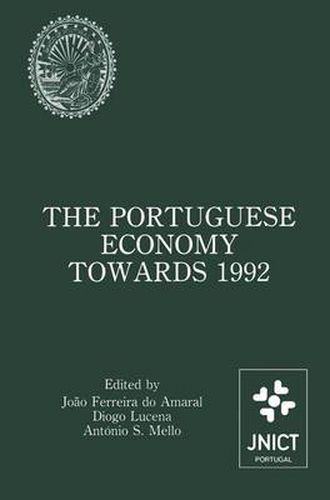Readings Newsletter
Become a Readings Member to make your shopping experience even easier.
Sign in or sign up for free!
You’re not far away from qualifying for FREE standard shipping within Australia
You’ve qualified for FREE standard shipping within Australia
The cart is loading…






This title is printed to order. This book may have been self-published. If so, we cannot guarantee the quality of the content. In the main most books will have gone through the editing process however some may not. We therefore suggest that you be aware of this before ordering this book. If in doubt check either the author or publisher’s details as we are unable to accept any returns unless they are faulty. Please contact us if you have any questions.
The Portuguese Economy Towards 1992 addresses the issues and problems faced by Portugal as it approaches European economic integration in 1992. Chapters are based on papers presented at a conference held in Vimeiro, Portugal on March 23 and 24 1991, and address topics which include business cycles, the European Monetary System, foreign direct investment and trade. In addition, a group of chapters focuses on labour issues wage gaps, mobility and productivity. This analysis of the highly open and semi-developed Portuguese economy aims to serve as a relevant model for other economies having to deal with integration.
$9.00 standard shipping within Australia
FREE standard shipping within Australia for orders over $100.00
Express & International shipping calculated at checkout
This title is printed to order. This book may have been self-published. If so, we cannot guarantee the quality of the content. In the main most books will have gone through the editing process however some may not. We therefore suggest that you be aware of this before ordering this book. If in doubt check either the author or publisher’s details as we are unable to accept any returns unless they are faulty. Please contact us if you have any questions.
The Portuguese Economy Towards 1992 addresses the issues and problems faced by Portugal as it approaches European economic integration in 1992. Chapters are based on papers presented at a conference held in Vimeiro, Portugal on March 23 and 24 1991, and address topics which include business cycles, the European Monetary System, foreign direct investment and trade. In addition, a group of chapters focuses on labour issues wage gaps, mobility and productivity. This analysis of the highly open and semi-developed Portuguese economy aims to serve as a relevant model for other economies having to deal with integration.